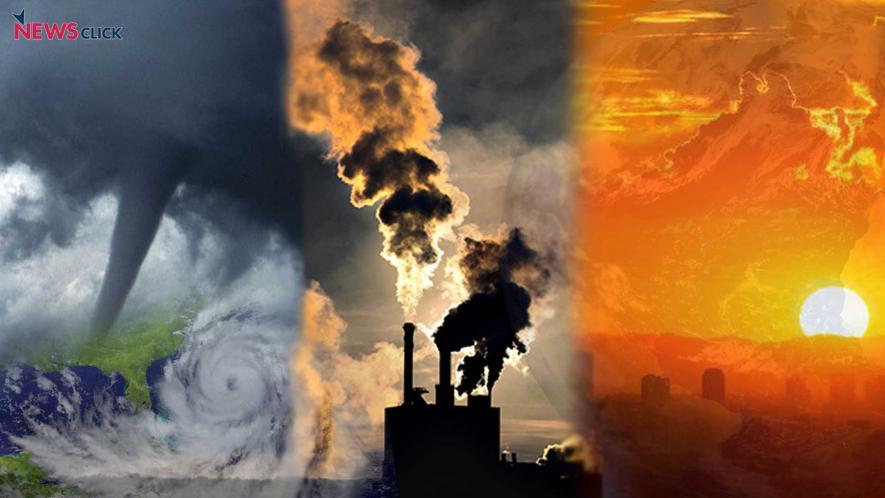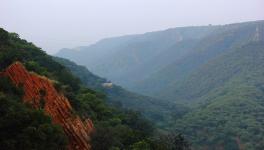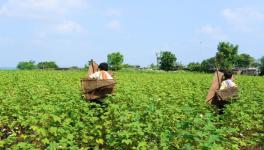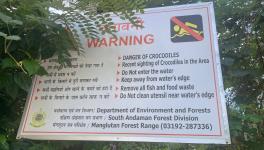Environment: Experts Ring Alarm Bells as Extreme Weather Events Rapidly Increasing in India

Nimli (Rajasthan): Extreme weather events have claimed lives across India and are set to affect the livelihood of many people, mainly the poor. It was revealed by experts that extreme weather events are likely to increase in the coming days due to climate change.
Mrutyunjay Mohapatra, director general of meteorology, India Meteorological Department (IMD), said that in 2021, extreme weather events accounted for the maximum number of deaths in the states of Maharashtra, Odisha and Madhya Pradesh; the largest number of districts were affected in Madhya Pradesh, Maharashtra and Uttar Pradesh.
Mohapatra spoke at a four-day Anil Agarwal Dialogue 2022, organised by the Centre for Science and Environment (CSE).
He said that there was a rising trend of heat and cold waves and rainfall. Heavy rainfall and flood-related incidents reportedly claimed over 750 deaths. Similarly, thunderstorms and lightning claimed more than 700 deaths last year,
AP Dimri, professor of environmental sciences at Delhi's Jawaharlal Nehru University – who was one of the speakers – echoed the dire warnings.
"Glaciers are depleting and increasing the flow of rivers in north India. The northern sides of the country will receive more rain compared to the eastern side. Cloudburst is becoming common, and we have found that in case of a cloudburst along the foothills of the Himalayas, the precipitation goes up by 14%."
Roxy Mathew Koll, a climate scientist with the Indian Institute of Tropical Meteorology in Pune, speaking in the same session, focused on the relatively lesser-known phenomenon of marine heatwaves. According to him, the Indian ocean is the fastest-warming ocean basin globally, severely impacting the South Asian region. Marine heatwaves are leading to a decline in phytoplankton populations and affecting the ocean fisheries.
"About 93% of the heat from global warming goes into the oceans. Warm waters are an energy source for cyclones – the frequency, intensity, rapidity, and duration. The Indian ocean, our research shows, will become conducive to cyclones as warming rises. Marine heatwaves also lead to marine habitat destruction due to coral bleaching, seagrass destruction and loss of kelp forests, affecting the fisheries sector adversely," said Koll.
Sunita Narain, director general, CSE, rang the alarm bells.
"The latest IPCC report has made it clear that the world has a small window to act to reverse the damage -- climate change impacts are devastating; half the world's population is highly vulnerable to the catastrophic changes; and this will get worse, much worse. The report acknowledges that the poor in the world are the worst-hit – they are the victims, they have not contributed to the stock of greenhouse gases in the atmosphere. And the report – for the first time – has talked about increasing climate change-related displacement. This will increase insecurity in our world."
Akshit Sangomla of Down To Earth said, "2021 was a very significant year, a year of extremes. It was one of the seven warmest years ever recorded. India ranked third in the world in experiencing climate change disasters. And lightning and thunderstorms accounted for the maximum number of climate-change-related deaths."
As per the IPCC's Sixth Assessment Report, the Earth's average surface temperature rise will cross 1.5°C in the next 20 years and 2°C by the middle of the century if there is no drastic reduction in GHG emissions. Even if emissions are brought to net-zero by the middle of the 21st century, there will be an "overshoot" of the 1.5°C limits by 0.1°C. The threshold of 2°C will be "exceeded during the 21st century" without deep emissions cuts "in the coming decades".
"A scary forecast is that the Arctic is likely to become sea-ice free in September -- the peak summer month -- at least once before 2050," Sangomla said.
Anil Agarwal Dialogue 2022, as the conclave is called, is an annual event. This year, it has brought together about 70 journalists from across the country to discuss some of India's critical environmental challenges. The dialogue was inaugurated on March 1 by the Union minister for environment, forest and climate change, Bhupender Yadav, who also released CSE and Down To Earth magazine's Annual State of India's Environment 2022 report on the occasion.
Get the latest reports & analysis with people's perspective on Protests, movements & deep analytical videos, discussions of the current affairs in your Telegram app. Subscribe to NewsClick's Telegram channel & get Real-Time updates on stories, as they get published on our website.
























